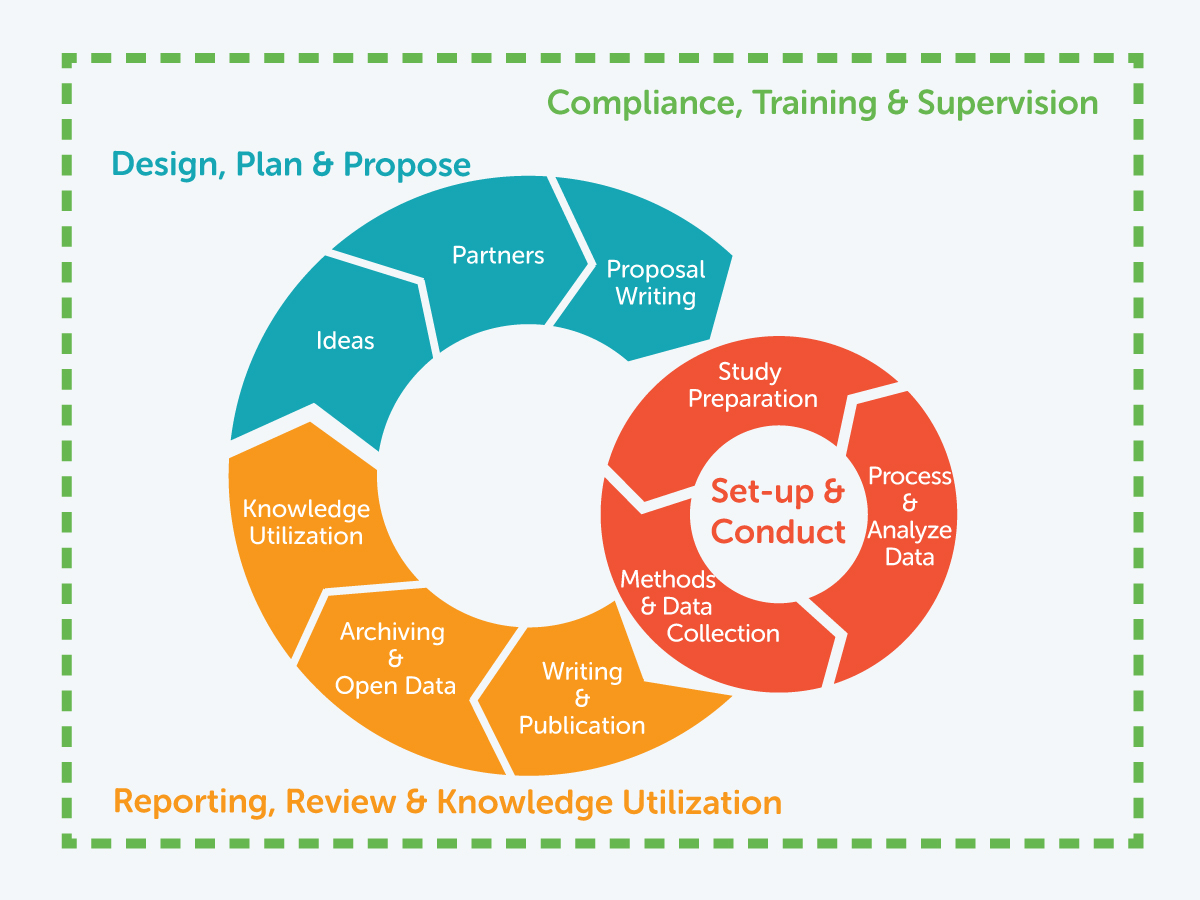Use of the handbook
With the intention of setting a standard, structuring information and making information accessible for all researchers, the Research Lifecycle is used to navigate the researcher through the Handbook. The Research Lifecycle represents all activities typically involved in a research project, and may be scientific or administrative in nature, or both. They begin with forming a hypothesis and conclude with final reports, scientific publications and the further utilization of knowledge.
Phases
Three phases have been defined in the Lifecycle:
Each of the phases have been divided in three sections. The overarching framework that provides normative context for all chapters is described in: Compliance, Training & Supervision.

History of the handbook
The handbook originated from the institute’s research community and was first made available online in 2003 under the auspices of APH's predecessors. This vibrant body of work and has been built up and updated over the past years as new values, principles, norms and practices in research became more relevant.

